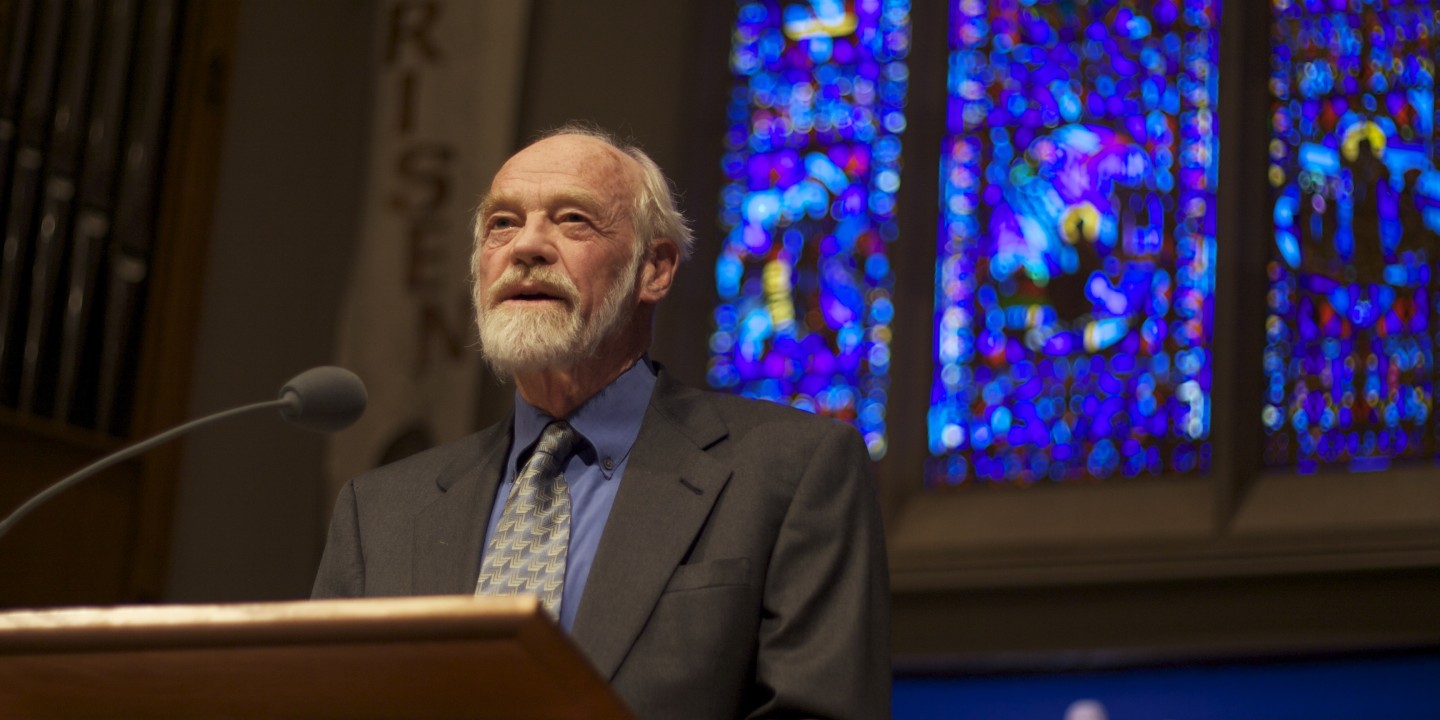Remembering Eugene Peterson the pastor
Gene was deeply rooted in scripture and in a Christ-centered spirituality.

Eugene Peterson was the most consequential pastoral theologian of the past 35 years. He was consequential because pastors actually read him. There may be no other author who is read as widely among Protestant pastors, both mainline and evangelical. My Facebook feed this morning reflects this. As word spread on social media about his death, numerous pastor friends posted tributes to him: words of affirmation about how he helped form their ministry; words of remembrance about hearing him speak, or meeting him in person.
Eugene was consequential because he didn't fall prey to the latest theories about leadership, organizational management, or psychology. He was deeply rooted in scripture (hence his paraphrased translation of the whole Bible in The Message) and in a Christ-centered spirituality. He exemplified what Hans Frei referred to as generous orthodoxy—rooted in the faith, yet not doctrinaire—and welcoming toward other Christian traditions besides his Presbyterian one.
Peterson focused on the basics of pastoral ministry—preaching, praying, and listening. More significantly, he brought to the table a dual focus on who the pastor is (identity) and where the pastor ministers (place/context). It is in this matrix of person and place that pastors fulfill their calling. While he loved the church, he had no illusions about the perfectibility of its people, starting with himself.
Gene also highly valued language, and he used words well. His memoir, which I recently read, reminded me just how good a writer he is. He also had a great sense of humor, accompanied by a twinkle of the eye.
Reading his memoir reminded me of a story Gene told when he spoke to a Mennonite pastors gathering in Indiana. He grew up in a Pentecostal church, where all the pastors were called “Brother.” One of these pastors, Brother Herman, spoke repeatedly about the evils of alcohol and boasted that no alcohol had ever passed his lips. When a young man from this congregation got married to a Mennonite woman, Brother Herman was invited to be part of the ceremony. All the young people from the church were there, including Gene.
After the ceremony there was a big feast. Word got around that one of the young Mennonite boys present had spiked the punch with vodka—although that word hadn’t reached Brother Herman, who kept going back to refill his cup with the punch, saying that he had never had such great punch before and he wanted the recipe. It wasn’t long before the punch took its effect. “Brother Herman spent the rest of the afternoon under an apple tree,” recalled Gene, “but not quietly—his loud snoring announcing the cancellation of his proud years of teetotalling.”
Here’s the kicker: after the session in which Gene told this story, a Mennonite pastor approached him, confessing he had been the young man who spiked the punch at that Mennonite wedding.
Three times in my career I was privileged to serve as a host to Gene. He always struck me as one of the most unpretentious, authentic, and humble people I've ever encountered. It didn’t seem as though he had an inauthentic bone is his body.
On one of those occasions I got to spend quite a bit of time with him while driving in a car. I said to him early on, “I know you're going to be speaking quite a bit at our events. If you'd like to simply be quiet while we travel together, I'm quite fine with that.” His raspy voice wasn’t strong to begin with.
To my surprise, he said he would rather engage me in conversation. And talk we did. I don't remember much of what we talked about, but I remember how he made he feel—a valued person with whom he wanted to engage in conservation that was not just small talk.
At the end of our time, he invited me to visit him sometime at his lakeside retreat in Montana. I now regret I never made that happen. Further conversation with Gene will have to wait.





